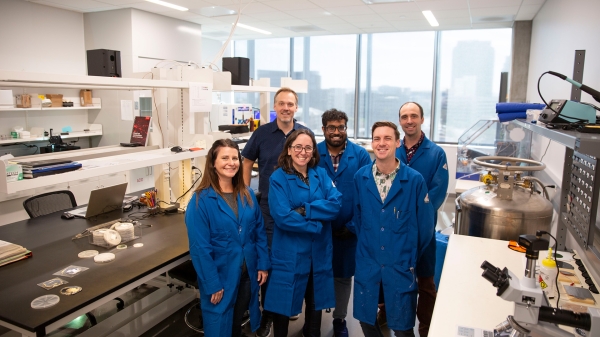The summer of 2020 gave way to the largest protests for racial justice and civil rights in the U.S. during the 21st century. Realizing the need to stand in solidarity with human-rights protesters who took to the streets and the desire to implement effective and meaningful change to actively fight against racism, the School of Historical, Philosophical and Religious Studies at Arizona State University created the Anti-Racism Committee.
Part of the mission of the committee is to “make lasting reforms in our primary area of expertise as educators and teachers by critically rethinking pedagogical approaches, course curriculums and student events to center Black and brown voices and experiences.”
In line with the mission, and to help students and the broader community understand the ongoing realities of systemic racial violence and oppression, new courses within the school were developed and continue to be developed.
One such course launched for the first time in fall 2021, titled “From Racism to Justice: Reshaping the Humanities in the 21st Century.” The iCourse emerged from the work of Associate Professor of history Julian Lim, Lecturer of philosophy Michelle Saint and Assistant Professor of religious studies Shamara Alhassan, who taught the course.
The course is the first in the school to be listed across the three disciplines that focuses on racism within the humanities.
“The purpose of this introductory course is to train a new generation of scholars to use critical humanistic inquiry to dismantle racist epistemology and, to this end, provide a basic understanding of the way race, racism and white supremacy function across our disciplines, and ultimately help us reshape the humanities to center justice, equity and reparations,” Alhassan said.
The students who took the course were drawn to it in different ways. Rhianna Cheetham is earning a bachelor’s degree in social work and initially chose the course to fulfill a cultural diversity credit.
“I expected this course to touch on how racism is occurring, what caused it and what is working in those aspects of improvement,” Cheetham said. “This class was about these things, but also so much more than that. This class focused on the responsibility that we have, as students, teachers and community contributors, to have epistemic reparations and not only recognize injustice, but do something about it.”
Farhat Ali, a double major in political science and women and gender studies, took the course because she had taken a previous class with Alhassan and enjoyed her teaching style.
“This course was everything I expected it to be,” Ali said. “It tied in history, contemporary issues surrounding race and racism, feminism and gender, intersectional identities and even music in order to create a framework for understanding how we move towards liberation.”
Engineering undergraduate JJ Sales was intrigued by the title of the course and decided to enroll.
“I wanted to be involved in talking and especially learning more about racism besides reposting and retweeting posts on what we hear in the news and or facts about racism like how America was built by racism,” Sales said.
The class used Yellowdig as the main platform for communication, which students said contributed to “deeper conversations” and allowed room for “extensive conversation.”
“(Alhassan) has such a fresh and unique take on how she teaches, and I love that she brings in so many different elements and forms of inclusive education to support all kinds of learners,” Ali said. “She is also incredibly open to conversations and feedback, and I love that she’s always readily available to support her students.”
Along with the discussions and readings about the broader issue of racism, students learned about current issues at Arizona State University and allowed them to develop ways to actively combat them.
“The final assignment for the course provides students the opportunity to create epistemic reparation action plans for SHPRSSchool of Historical, Philosophical and Religious Studies and ASU,” Alhassan said. “These plans encourage students to apply what they have learned about racism in the humanities to implement practical, sustainable and accountable solutions for addressing these issues in SHPRS and ASU.”
The plans developed by the students will be used to support the work of the Anti-Racism Committee and the work within the school to address the issue of structural racism.
“I'm just grateful that this class exists, and I just hope that in the future that most if not all colleges and schools across America have this kind of class,” Sales said.
More Science and technology

ASU professor honored with prestigious award for being a cybersecurity trailblazer
At first, he thought it was a drill.On Sept. 11, 2001, Gail-Joon Ahn sat in a conference room in Fort Meade, Maryland.…

Training stellar students to secure semiconductors
In the wetlands of King’s Bay, Georgia, the sail of a nuclear-powered Trident II Submarine laden with sophisticated computer…

ASU startup Crystal Sonic wins Natcast pitch competition
Crystal Sonic, an Arizona State University startup, won first place and $25,000 at the 2024 Natcast Startup Pitch Competition at…
